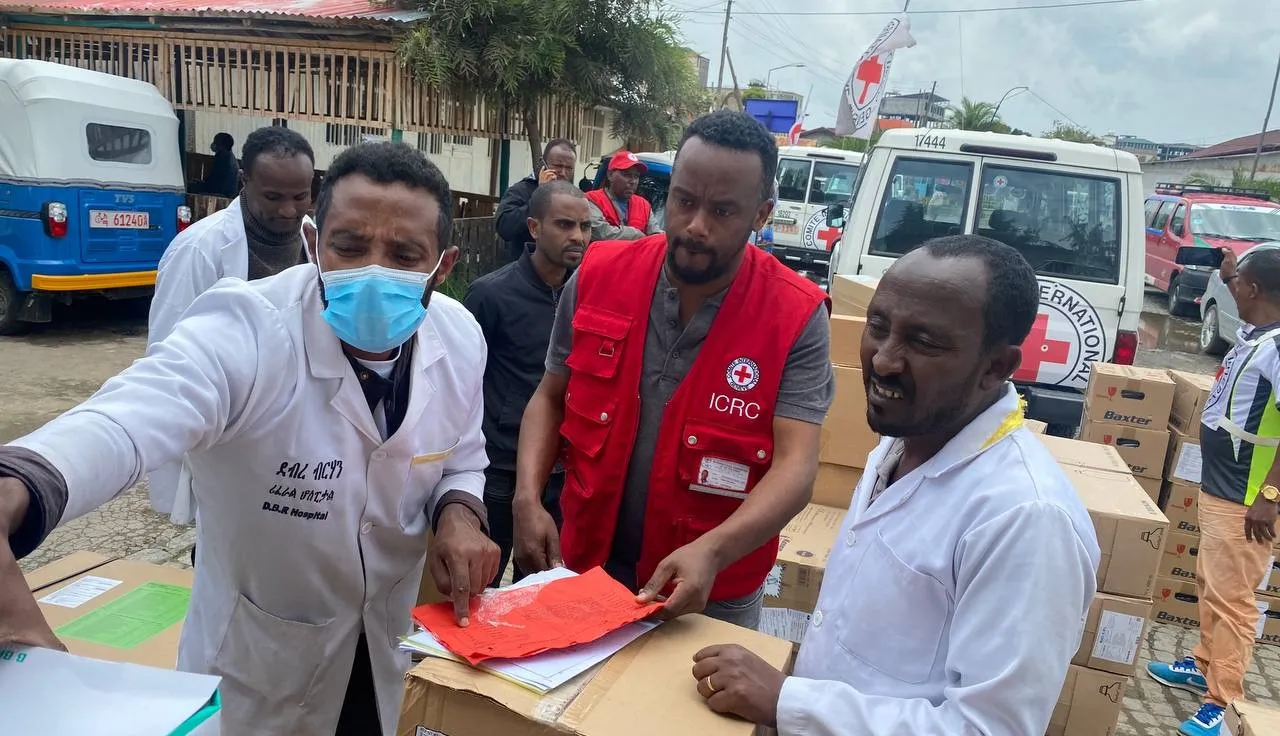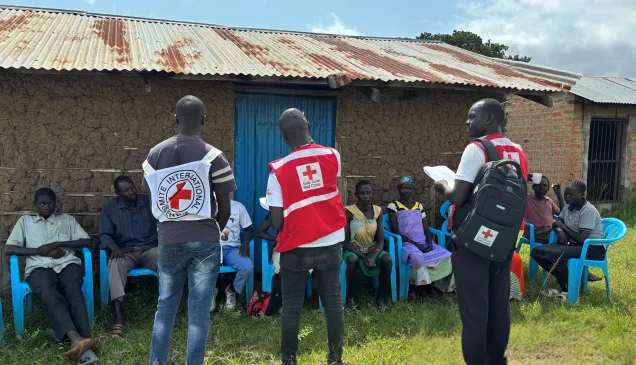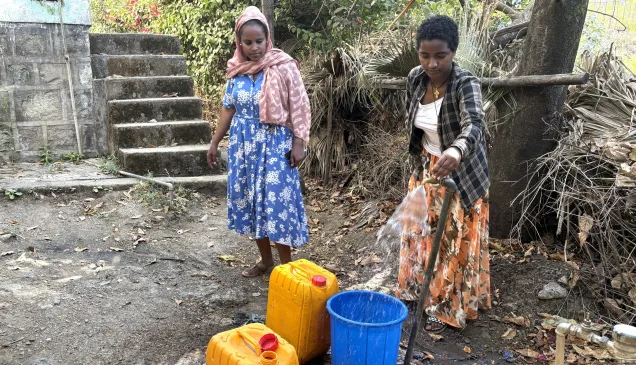Responding to urgent humanitarian needs in Amhara and other hard to reach areas in Ethiopia

Fighting in parts of Ethiopia has left people in urgent need of lifesaving healthcare, water, food, shelter, and protection services. The International Committee of the Red Cross (ICRC) is responding to the immediate needs of populations most affected by the fighting which are hard to reach and therefore especially vulnerable.
In Amhara, where clashes continue to take place, ambulance services have been severely disrupted while health facilities have become periodically isolated and even unreachable at times. Hospitals are struggling to care for the wounded and critically ill in areas where the security situation is particularly unstable. According to a health worker from Injibara General hospital,
Together with the Ethiopian Red Cross Society (ERCS) and as a matter of utmost urgency, the ICRC is boosting healthcare capacities throughout the Amhara region by delivering lifesaving medicines and surgical supplies to health facilities that are particularly hard-hit and hard to reach. In the last month, emergency supplies have been delivered to 19 hospitals across Amhara region, including Debat Primary Hospital, Debark General Hospital, Dessie Comprehensive Hospital, Kombolcha General Hospital, Woldia Referral Hospital, Finote Selam General Hospital, Dembecha General Hospital, Injibara General Hospital, Motta General Hospital and Debretabor General Hospital. In cooperation with the Ministry of Health, the ICRC has also undertaken multiple deliveries of much needed blood supplies to blood banks in Bahir Dar, Gondar and Lalibela, critical to ongoing life-saving surgical interventions.
The wounded and sick are entitled to assistance and must be cared for. ICRC calls upon those involved in the fighting to protect, respect and facilitate health care services for all who are in need of urgent medical attention.
The fighting in Amhara has also damaged or interrupted critical water supplies. "We have identified five towns today where the population are in urgent need of support. Feres Bet, Bure, Chara, Tilili and Injibara town have all seen their water access disrupted as a result of recent clashes," said Ivano Marati, the ICRC Water and Habitat Coordinator in Ethiopia. "The ICRC already helped restore the water supply in Debre Markos town by installing a submersible pump in a borehole that serves approximately 8,000 people from the community, the hospital and the local prison." ICRC teams also replaced two control boards at the Angereb water treatment plant in Gondar town and donated 7.2 tons of chlorine and 29 tons of aluminum sulphate to ensure safe water supply for two months for the more than 200,000 strong population.
Elsewhere in Ethiopia, the ICRC is continuing to support populations which remain affected by fighting – past or present - in areas particularly hard hit and hard to reach. During the past month in Oromia, the ICRC conducted multi-purpose cash distributions for 15,864 internally displaced persons in Gelana Tore (West Guji) and a food distribution together with the ERCS in Sayo Woreda for 27,624 people displaced by fighting in Kellem Wollega. In nearby Dembidolo, the security situation has left people with physical disabilities without access to much needed physical rehabilitation services. A recent ICRC outreach activity has ensured that the 380 people identified as in need of care to restore their mobility are now receiving services from the ICRC supported Nekemte Physical Rehabilitation Centre. Meanwhile in Tigray, the nutrition status of pregnant and lactating mothers and of children under five is of high concern, prompting the ICRC to launch a lifesaving nutrition program, focusing on hard-to-reach places. More than 6000 women and children have been treated for malnutrition in ICRC assisted health posts in Tigray since April this year.
Also in Tigray, a terrible legacy of war is unexploded and abandoned ammunition, threatening the lives and livelihoods of the communities that inhabit the contaminated areas. Together with the ERCS, the ICRC is undertaking a risk awareness and safer behavior program to help sensitize the most affected communities – particularly those in remote and difficult to access areas such as Hiret in the Northwest and Fatsi in the Eastern Tigray where children have been particularly impacted. Whenever accidents do occur, teams are deployed to conduct emergency awareness sessions and to support referrals of the victims to ICRC supported health facilities.
In hard-to-reach communities particularly hard hit by fighting both past and present, the ICRC maintains a regular dialogue with all the major actors involved in order to enhance respect for international humanitarian law.



